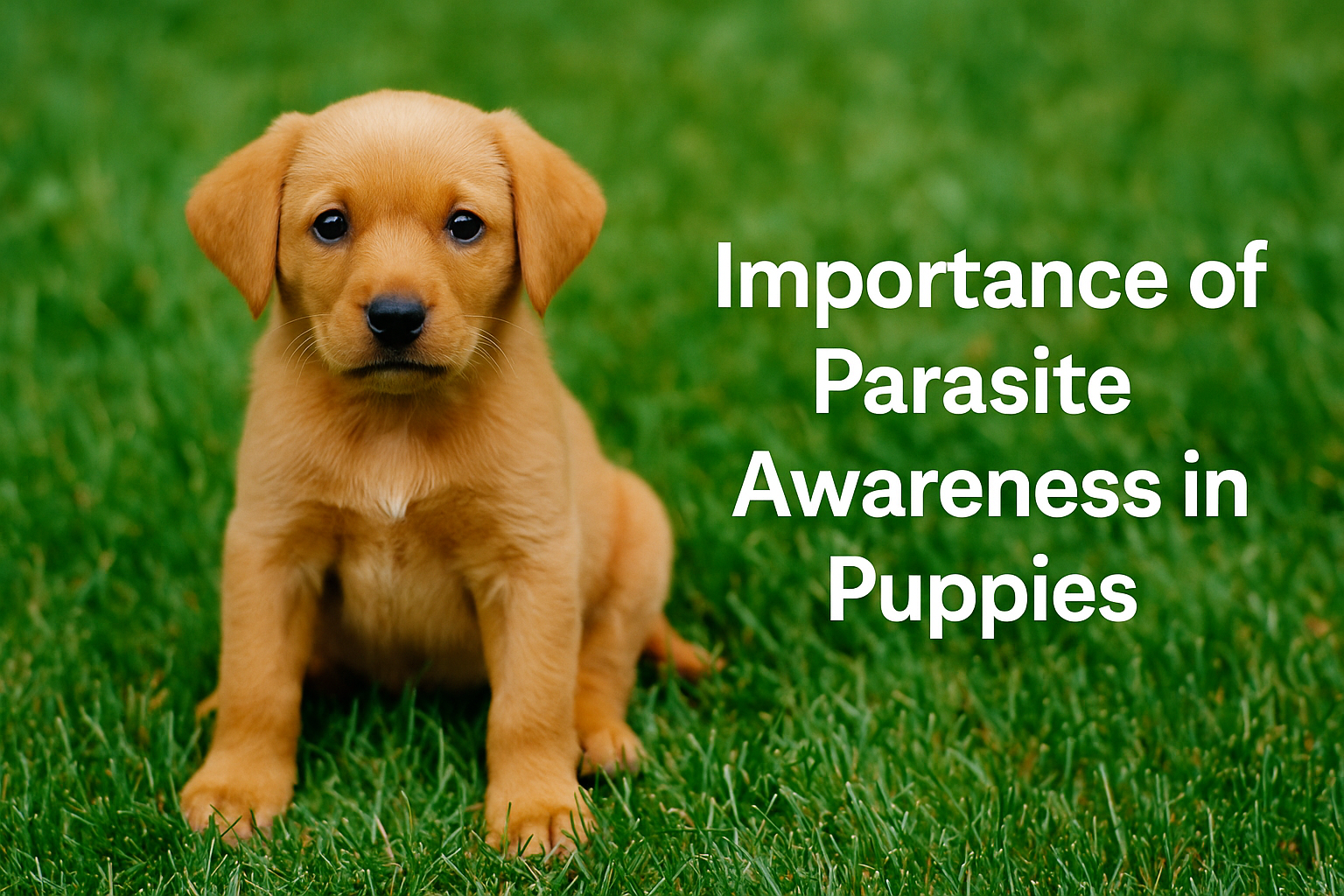Parasite Awareness in Puppies: Symptoms, Treatments, and Prevention
Why Parasite Awareness Matters
Puppies have developing immune systems, making them extra vulnerable to illnesses caused by parasites. According to Dr. Jennifer Coates from PetMD, “Routine deworming and early treatment form the cornerstone of a healthy, worm-free puppy life.” Early detection and regular check-ups can prevent serious health complications that might otherwise stunt their growth or endanger their lives.
Common Types of Worms in Puppies
- Roundworms: Often passed from mother to puppy, these can cause bloating and poor growth.
- Hookworms: Attach to the intestinal wall and can lead to dangerous blood loss and anemia.
- Tapeworms: Typically acquired through fleas, tapeworms cause digestive issues and itching.
- Whipworms: Reside in the large intestine, leading to diarrhea and weight loss.
Signs and Symptoms of Worm Infestation
Recognizing the symptoms early can save your puppy from serious harm. Here’s what to watch for:
- Increased or decreased appetite without corresponding weight gain
- Visible worms in stool or vomit (resembling spaghetti or rice grains)
- Pot-bellied appearance
- Diarrhea or constipation
- Persistent coughing (in severe cases)
Behavioral Changes That Could Signal Worms
Sometimes the signs aren’t physical. Behavioral changes can also indicate trouble:
- Lethargy or reduced playfulness
- Restlessness and difficulty sleeping
- Excessive licking or chewing around the tail area
Example: If your normally playful Labrador puppy suddenly prefers lying down and shows little interest in toys, it’s worth checking for worms.
Potential Health Complications from Untreated Worms
Without treatment, worms can lead to severe issues such as:
- Anemia: Particularly from hookworms due to blood loss.
- Intestinal blockages: Heavy infestations can physically block the intestines.
- Stunted growth and malnutrition: Nutrient depletion affects overall development.
How to Conduct a Home Check
It’s smart to regularly inspect your puppy at home. Look for:
- Swollen abdomen
- Visible worms in vomit or feces
- Signs of discomfort, such as scooting or excessive rear-end attention
Veterinary Diagnosis and Testing
If you spot any suspicious signs, schedule a vet visit immediately. Diagnostic tests such as fecal examinations and blood work can confirm the type of parasite involved, ensuring the right treatment plan is given.
Treatment Options for Worms in Puppies
Your vet may prescribe dewormers tailored to the type of worm. Common treatments include:
- Prescription oral dewormers (e.g., Fenbendazole, Pyrantel)
- Topical or injectable dewormers
Tip: Always follow the vet’s dosage instructions. Over-the-counter remedies can vary in effectiveness and safety.
Natural Remedies for Complementary Care
Some pet owners use natural aids like pumpkin seeds (containing cucurbitacin, a natural dewormer) or ground carrots. However, these should never replace vet-prescribed treatments. Think of them as supportive boosts for digestion and gut health.
How to Prevent Worm Infestation
Prevention is far easier than treatment. Key strategies include:
- Regular deworming following your vet’s schedule
- Maintaining a clean environment (prompt waste removal, clean bedding)
- Controlling fleas to prevent tapeworms
- Monitoring outdoor activities and limiting exposure to unknown animals
Conclusion
Keeping your puppy free of parasites starts with awareness, regular vet care, and preventative measures. By paying attention to the signs and acting quickly, you ensure your puppy grows into a healthy, happy adult dog. Remember Dr. Coates’ wise words: “Routine deworming and early treatment form the cornerstone of a healthy, worm-free puppy life.” 🐶
FAQ: Understanding and Managing Worm Infestations in Puppies
What are the early signs that my puppy might have worms?
Changes in appetite, a swollen belly, visible worms in stool or vomit, and unusual lethargy are common early signs of worm infestation.
How do puppies get worms?
Worms can be transmitted from the mother during pregnancy or nursing, through contaminated food, soil, water, or interaction with infected animals.
Can worms in puppies be transmitted to humans?
Yes! Roundworms and hookworms can infect humans, particularly children, through contaminated environments. Hygiene and quick puppy treatment help prevent this.
How often should I deworm my puppy?
Typically, puppies are dewormed every 2-3 weeks starting at two weeks old until about 12 weeks. After that, monthly treatments are recommended up to 6 months old.
Can I prevent worm infestations in my puppy?
While it’s impossible to eliminate all risks, regular vet visits, prompt waste cleanup, flea control, and a clean living environment greatly reduce the risk.
Are there natural remedies for treating worms in puppies?
Natural options like pumpkin seeds and carrots can help with digestion but should be used alongside, not instead of, prescribed treatments.








